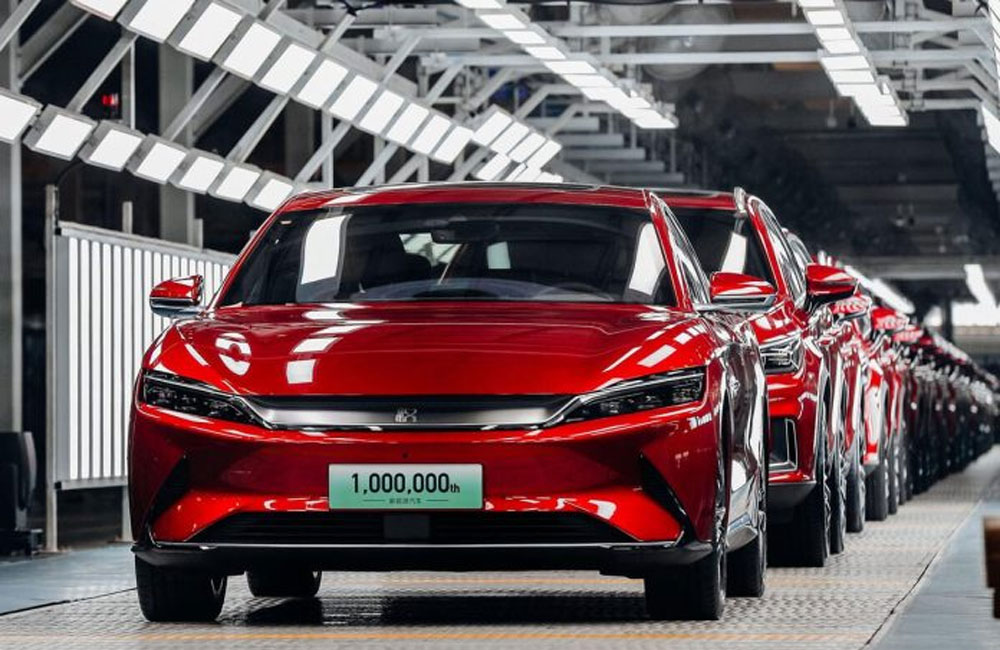Sri Lanka’s long-promised leap into electric mobility has hit a legal speed bump as the Court of Appeal this week ordered Sri Lanka Customs to expedite its investigation into the controversial detention of BYD electric vehicles imported by John Keells CG Auto Ltd. (JKCG), a joint venture between Sri Lanka’s blue-chip conglomerate John Keells Holdings PLC and Nepal’s Chaudhary Group (CG Corp Global).
During Thursday’s hearing, Court of Appeal President Justice Rohantha Abeysuriya stressed that while Customs plays a crucial role in revenue collection, the interests of consumers and importers must also be safeguarded. The court directed Customs to swiftly conclude its probe into the vehicles’ engine (motor) capacity and urged all parties to cooperate.
The dispute erupted after Sri Lanka Customs detained several shipments of BYD electric vehicles, alleging that their motor power had been under-declared to reduce import duties. John Keells CG Auto filed a writ petition seeking the release of around 1,000 vehicles held at the port. In August 2025, the court allowed conditional release upon submission of a bank guarantee of about Rs. 3.6 billion and cooperation with an independent technical committee.
Additional Solicitor General Sumathi Dharmawardena, appearing for Customs, informed the court that the vehicles could be released under a company bond, while a detailed report on the scanning equipment used for inspection would be presented next week. However, President’s Counsel Farzana Jameel, representing JKCG, argued that the detention was unlawful. The court will revisit the case on October 28 to consider possible settlement terms.
Meanwhile, John Keells CG Auto issued a public statement clarifying that none of the recalled BYD Tang or Yuan Pro models had been sold in Sri Lanka. The recall, announced by BYD in China, affected vehicles manufactured between 2015 and 2022, but not those imported locally. JKCG emphasized that all BYD units sold in Sri Lanka carry full manufacturer warranties and after-sales support from trained technicians.
The case has drawn attention to Sri Lanka’s fragile regulatory environment for electric vehicles. The BYD venture, launched in 2024 as a major green initiative, was expected to revolutionize the country’s EV market with showrooms in Colombo, Kurunegala, Ratnapura, and Ampara. Yet, the customs controversy has stalled deliveries and cast a shadow over the project.
The controversy also echoes past regulatory challenges faced by CG Motors in Nepal, where the company was accused of tax manipulation in 2023. Combined with Chaudhary Group’s acquisition of Union Bank of Colombo through offshore channels, questions have surfaced about governance and transparency.
As Sri Lanka pushes toward sustainable transport, the BYD case underscores a broader issue — balancing investor confidence, regulatory scrutiny, and public accountability in the country’s emerging EV landscape.

Leave your comments
Login to post a comment
Post comment as a guest